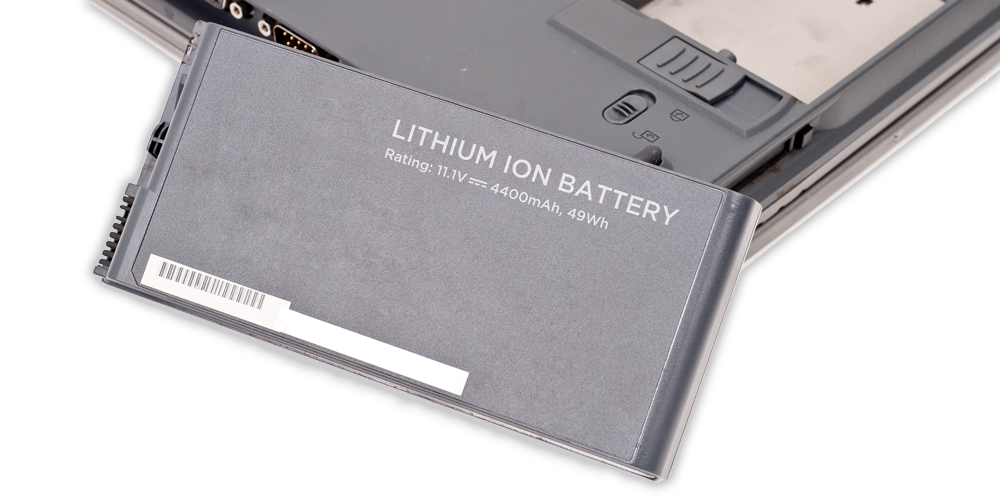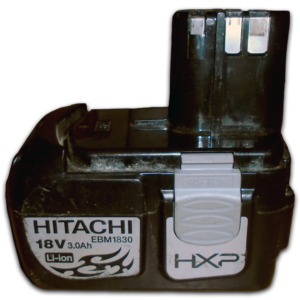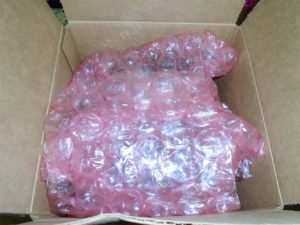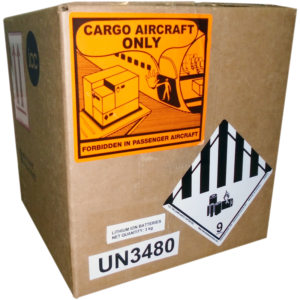
Shipping Power Drill Batteries as Dangerous Goods
Anyone who ships by air these days can relate to the frustrations associated with shipping lithium batteries.
The Problem
A gentleman (let’s call him Jack for reference purposes) was given our contact information by Air Canada to get his motorcycle declaration completed. I provided Jack with the shipper’s declaration and he was able to ship his motorcycle with Air Canada. Jack is moving to Faro, Portugal (yes, I am jealous too!) and he is shipping all his personal effects. The broker that is helping Jack with shipping his belongings told him lithium batteries (his power drills) are dangerous goods and Jack needed to remove them, which he did.

Unfortunately the broker didn’t provide Jack with any directions on how he can ship them. So, when Jack went to drop off his motorcycle to Air Canada he asked about shipping his power drills and Air Canada cargo folks told him it’s DG and he needs to get it prepared for transport, and to call Air Canada (yes, you need to call the 1-800 number) for more information. Of course Jack did and Air Canada told him they can accept the shipment as long it’s prepared for air transport. That’s where I come in.
What Are Jack’s Options?
Jack then called me back. He said to me, “You seem to know what you are talking about when it comes to the DG stuff so I thought I’d call you for help on getting these lithium batteries shipped.” As per my usual dialogue with anyone asking to ship lithium batteries, I asked Jack about the type of battery, the watt hour, and how many he had. I directed him to look at the back of the battery to find the required information. He had two (2) batteries with less than 100 watt hours.
I offered Jack three (3) options:
- Ship as dangerous goods: “Lithium ion batteries contained in equipment”;
- Remove the batteries from the drill and drain them so they can be sent as “Lithium ion batteries”. With power tools, it is difficult to tell if the battery has less than 30% charge so I advise to completely drain out the battery. I also explained that if he chooses to send the batteries on their own then they cannot go on a passenger aircraft, and must go on a cargo aircraft. I gave him an example of a cargo aircraft (i.e., FedEx) versus passenger aircraft (i.e., Air Canada); or
- My preferred option that I offer to people like Jack (one-time shippers of lithium batteries) is to repurchase the batteries there (in Portugal) if available. This is likely the least expensive option.
Shipping the Batteries
Jack said his preference was to ship the drill and batteries separately because he doesn’t know if they are available to purchase in Portugal. When Jack spoke to Air Canada, they told him they could accept lithium batteries and that they have a cargo freighter. Of course I asked, “Are you sure?” and he replied, “Yes. Air Canada said they can take it.” Who am I to argue? Perhaps they do have cargo freighters – which we later found out wasn’t quite correct – leaving from Vancouver, B.C.

Jack showed up to our office with four (4) batteries – now that changed the scope again since only two (2) batteries are allowed per package under one (1) consignment. I advised him that the easiest option would be to send it all in one box, but that would change the re-packaging cost and likely the carrier shipping charge. He had no issues with that so I prepared it as a Section 1A package. I asked him again if he was sure Air Canada said they will take it, and he said, “Yes.” Jack left with his package.

Two days later, I got a call from Jack saying that the Air Canada staff lost their “cool” when he showed up with the package. Anyone who deals with DG can imagine the faces of the passenger/cargo carrier staff when they saw the package with a bright orange label which has a pictogram of a person yelling “Cargo Aircraft Only”. After some discussions with the Air Canada representatives it was evident there was miscommunication somewhere between Jack and Air Canada. I suggested that Jack bring the package back to me and that I would send it out with another carrier. When Jack returned with his package he mentioned that he isn’t scheduled to fly out to Portugal for a few days, so I advised him that I could hold the package at our office and can ship it to him when he lands in Portugal. A few days later, I received a picture of beautiful Faro by email and knew he had safely arrived so I sent him his batteries. All this running around for 4 drill batteries … I hope Jack will be using and keeping those power tools for a long time!
Should you have any questions regarding repacking or any other regulatory question, fill out our Regulatory Services form or contact us at 1.888.442.9628 (US) or 1.888.977.4834 (Canada).





